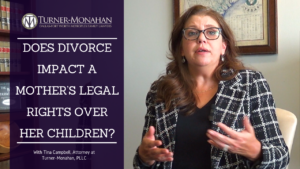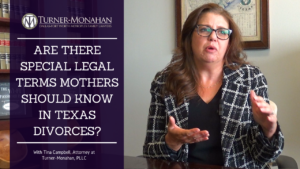
Divorce can bring many uncertainties and financial worries. If you have a joint bank account with a relative, you might be wondering if it’s safe from divorce settlements. In Texas, divorce law is complex and includes community property rules that can affect how assets are divided.
Understanding your rights is crucial, and seeking advice from a knowledgeable spousal maintenance attorney or family law attorney can help you protect your assets.
For personalized advice, please contact Attorney Tyler Monahan, partner at Turner-Monahan, PLLC, to discuss your case.
Understanding Community Property in Texas Divorce Law
Texas follows a community property system. Under Texas Family Code §3.002, community property includes any assets acquired by either spouse during the marriage, excluding gifts or inheritances. This law means that both spouses typically share equally in all assets acquired during the marriage.
What is Separate Property?
Separate property, on the other hand, includes:
- Assets acquired by a spouse before marriage.
- Gifts and inheritances that have been given specifically to one spouse during the marriage.
- Compensation for personal injuries, with certain exceptions.
Separate property is not subject to division in a divorce settlement, but proving that an asset is separate requires clear and convincing evidence under Texas Family Code §3.003(b).
Are Joint Bank Accounts with Relatives Safe?
A joint bank account with a relative might not be safe from divorce settlements due to community property rules. Here’s what you should consider:
Presumption of Community Property
Under Texas Family Code §3.003(a), any asset acquired during the marriage is presumed to be community property. If a joint bank account with a relative was opened or funded during the marriage, it might be considered community property.
Rebutting the Presumption
To rebut the presumption of community property, you must show that the account is separate property through clear and convincing evidence. For instance, if the account contains money inherited from a relative and hasn’t been mixed with community property, it may be considered separate.
Commingling of Funds
If separate property is mixed with community property in the account, it may be challenging to distinguish the separate property. This issue is known as “commingling,” and it can lead to the entire account being treated as community property.
Legal Implications According to the Texas Family Code
Joint Accounts and Division of Property
If a joint bank account is used by you and a relative, and the account is considered community property, it will be divided fairly between you and your spouse. Fair division does not always mean a 50/50 split, as the court will consider various factors, including each spouse’s financial situation and contributions.
Protection Through Agreements
A prenuptial agreement lawyer or postnuptial agreement services can help draft agreements that protect your joint bank account and other assets. Texas Family Code Chapter 4 permits couples to agree on the status of their assets, preventing disputes in divorce proceedings.
How to Protect Your Joint Bank Account
Consider a Prenuptial or Postnuptial Agreement
Prenuptial Agreement: A prenuptial agreement defines property rights before marriage and can specify that a joint bank account with a relative remains separate property.
Postnuptial Agreement: If you’re already married, a postnuptial agreement can serve a similar purpose by clarifying the ownership of the account.
Keep Detailed Financial Records
Keep records of deposits and withdrawals from the joint bank account to show that the funds are separate property. This process is known as “tracing” and requires comprehensive documentation.
In a nutshell, a joint bank account with a relative might not be safe from divorce settlements in Texas. Community property rules can affect how joint accounts are treated, but with the help of an experienced attorney, you can better protect your assets. At Turner Monahan PLLC, we offer the legal support you need to secure your financial future. Contact us today for a free consultation and learn how we can help you.
Common Questions About Joint Bank Accounts and Divorce
- Can a Joint Account with a Relative Be Frozen During Divorce Proceedings?
During divorce proceedings, Texas courts can issue a temporary restraining order to prevent either spouse from disposing of community property, including joint bank accounts.
- Will My Relative’s Funds Be at Risk?
If your relative deposited money into the account believing it was separate property, they might be surprised to find it could be considered community property. It is essential to provide evidence that the relative’s contributions are separate.
- How Does the Court Divide Joint Bank Accounts?
The court will review the nature of the account, contributions made by each spouse, and the source of the funds to determine how to divide it.
Discuss Your Case With Turner Monahan, PLLC: Your Advocates in Difficult Times
Turner Monahan PLLC has been safeguarding families since 1973. Our family law firm offers expert legal services to help you navigate the complexities of Texas divorce law. Whether you need a DFW divorce attorney, a divorce attorney for women, or assistance with a contested divorce, we are here to protect your interests. Schedule a free, no-obligation consultation with attorney Tyler Monahan to discuss the details.
Disclaimer
The commentary and opinions are for informational and educational purposes only and not to provide legal advice. You should contact an attorney in your state to obtain legal advice concerning any particular issue or problem. You can become a client and enter the attorney-client privilege only after hiring Turner-Monahan, PPLC, by signing a written retainer agreement.


